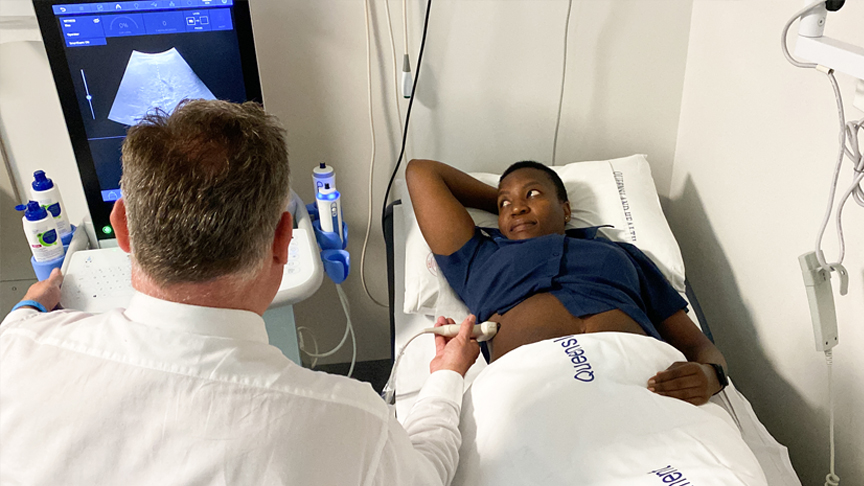
While Valentine’s Day is typically all about the heart, Sunshine Coast Hospital and Health Service (SCHHS) Director of Gastroenterology and Hepatology Professor James O’Beirne is asking people to also love their liver this February 14.
According to data collected by the Australian Family Physician, alcohol is a major cause of liver disease in Australia, and the incidence of end stage liver disease among young adult Australians is rising.
“The way we live our lives, and the normalisation of alcohol has led to significant increases in consumption across the board. There’s been a staggering rise in deaths from alcohol related liver disease in the last 20 years and the COVID pandemic has really rocketed those,” Prof. O’Beirne said.
“Since Sunshine Coast University Hospital (SCUH) opened we’ve had more than 300 new presentations with advanced liver disease, cirrhosis, and liver failure, and of those nearly 60% have sadly died.”
The normalisation of societal trends like ‘wine o’clock’ has resulted in Prof. O’Beirne seeing more younger women presenting with alcohol related liver disease, which he said is extremely worrying.
“We run a hepatology service and we usually have between 5 and 10 patients on the ward with alcohol related liver disease, of those we will always have a young woman,” he said.
“Women tend to have a smaller body mass so for a certain given amount of alcohol the volume of distribution is less and the effects of that alcohol on the liver are more intense. Women tend to present earlier with advanced chronic liver disease and unfortunately unless they stop drinking the outcome can be devastating.”
Alcoholic liver cirrhosis is when the body starts to replace the liver’s health tissue with scar tissue.
While it is incurable, early diagnosis and treatment can minimise damage.
“Not everybody, but the vast majority of people will improve with abstinence from alcohol, but it can take 3-6 months for the liver to improve, and it needs to be complete abstinence” Prof. O’Beirne said.
Guidelines developed by the National Health and Medical Research Council state to reduce the risk of harm from alcohol-related disease or injury:
- Healthy men and women should drink no more than 10 standard drinks a week and no more than 4 standard drinks on any one day
- Children and people under 18 years of age should not drink alcohol
- Women who are pregnant, planning a pregnancy or breastfeeding should not drink alcohol
Prof. O’Beirne strongly encourages people to stick to these guidelines and aim to have two alcohol free days a week.
“If you drink more than 10 standard drinks a week that’s when the risk of alcohol related diseases - we’re not just talking about cirrhosis but other things that alcohol can cause especially in women like an increased risk of breast cancer – starts to go up. The problem is the risk is not linear, it’s exponential, so if you double it and drink 20 standard drinks a week your risk doesn’t go from 1% to 2% it goes from 1% to 5%.”